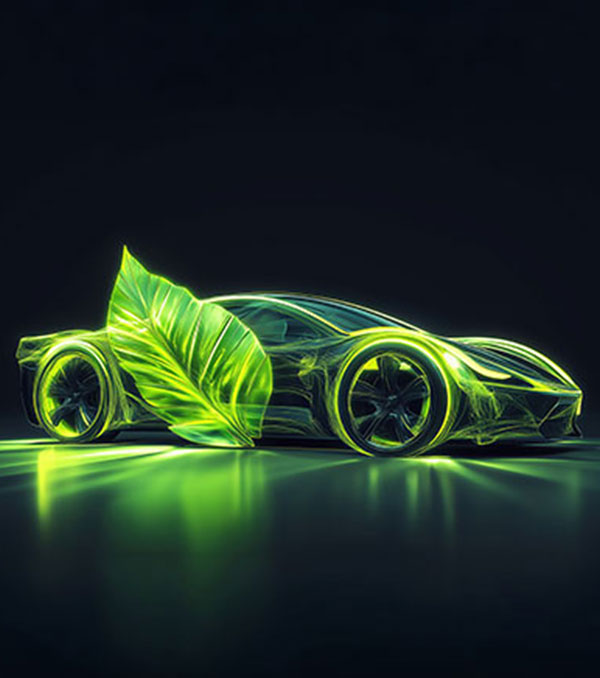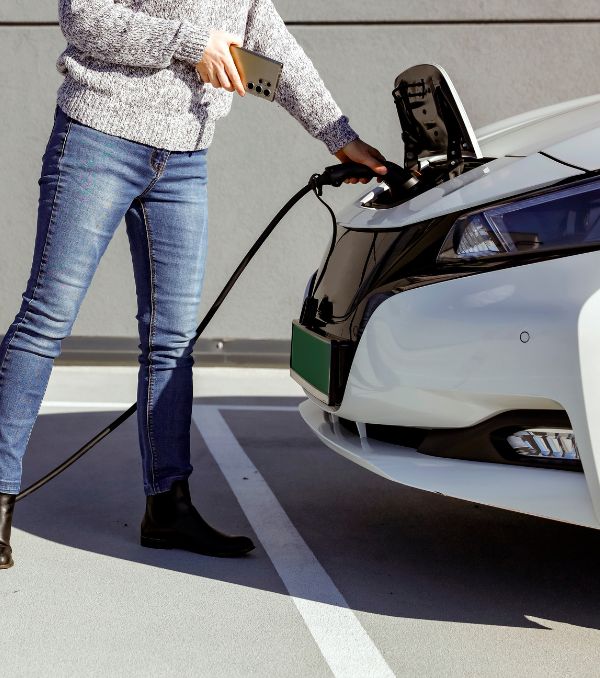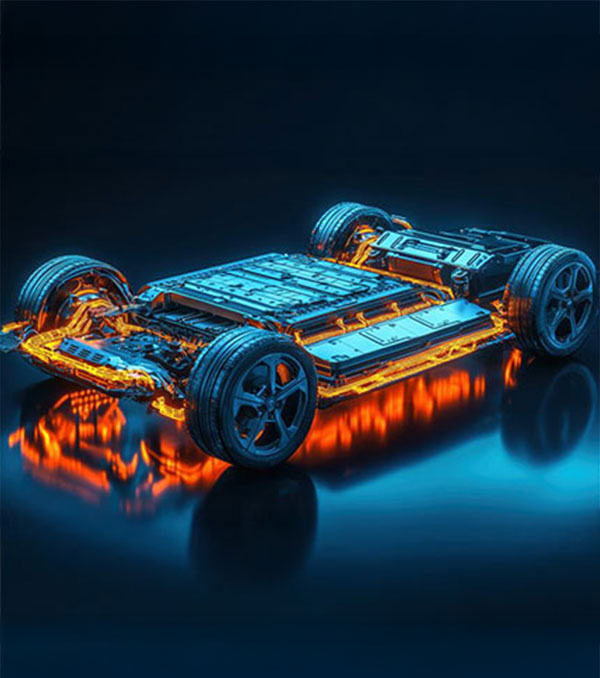

7 Green Gears Powering the Auto Industry’s Sustainable Revolution
The automotive industry stands at a pivotal crossroads where innovation meets responsibility, and performance must coexist with planetary preservation.
Read Article

Fast Chargers are Critical for EV Industry to Sustain Growth
Euronews in conversation with Manoj Raghavan, MD & CEO, Tata Elxsi
Watch now

Tata Elxsi and Infineon Partner to Accelerate EV Innovation in India
Strategic alliance to accelerate EV system deployment across all vehicle segments
Read more

AI-Enhanced Multiphysics Framework for Predictive Battery Management System in EVs
Explore the future of EVs in our whitepaper on predictive battery management.
Whitepaper-1.png )
.png )
Electric Vehicle Battery using Digital Twin
Explore Tata Elxsi's whitepaper on using a digital twin for developing scalable EV battery features to enhance vehicle performance.
Read Whitepaper
.png )
E-Motor Technology for Electric Vehicle
Discover insights into sustainable e-Motor technologies for EVs, evaluating alternatives to permanent magnets and comparing different technologies for improved sustainability.
Read Whitepaper.png )

MOBIUS+
MOBIUS+ - A Battery Lifecycle Management Platform by Tata Elxsi, optimizes battery management with advanced analytics and real-time monitoring to boost efficiency and sustainability.
Read ArticlePowering the Future of Electric Vehicles
Global Electric Vehicle Development demands a seamless blend of engineering expertise, Battery Management Systems integration, and Hardware-in-the-Loop Simulation. At Tata Elxsi, we bring together embedded systems, mechanical engineering, and Digital Twin technologies to redefine next-generation EV performance. Our solutions address range anxiety, sustainability goals, and evolving consumer expectations, positioning us as an end-to-end partner for OEMs and Tier-1 suppliers. We focus on safety, cost efficiency, and swift development lifecycles.
With proven experience in ECU Consolidation and advanced testing frameworks, we streamline product validation to boost time-to-market. Our holistic approach ensures resilient, future-ready powertrains for global electrification success and seamless scaling.
Designing an Integrated Power Combo Unit for EVs
.jpg )
.jpg )
Here’s How We Help
Turnkey EV Engineering
- Develop E-motors, power electronics, and skateboard chassis with faster concept-to-production cycles.
- Leverage robust mechanical design for optimized Synchronous Reluctance Motors that reduce costs and environmental impact.
- Empowering OEMs with integrated EV architectures for greater performance.
Battery & Charging Innovations
- Design advanced Battery Management Systems featuring Wi-Fi, Bluetooth, LTE, and GPS connectivity.
- Adopt Battery Digital Twin solutions for real-time monitoring, predictive maintenance, and prolonged battery life.
- Enhance charging infrastructure compatibility for global EV ecosystems.
Integrated Testing & Validation
- E-mobility Hardware-in-the-Loop setups for comprehensive validation of powertrain, battery, and control systems.
- Accelerate market readiness with end-to-end compliance, functional safety, and software reliability testing.
- Ensure robust performance through iterative, data-driven validations.
Solution Framework
.jpg)
Turnkey Design & Engineering
Collaborate with Tata Elxsi to develop E-motors, Electric Drive Units (EDUs), and skateboard chassis from concept to deployment. Our expertise in embedded software, mechanical engineering, and power electronics ensures optimal performance. This holistic approach drives faster market entry, reduces costs, and enhances reliability across all stages of Electric Vehicle development.
Battery Digital Twin Platform
Enable proactive battery monitoring and predictive maintenance with our cloud-based Digital Twin solutions. Robust real-time analytics offer insights on charging cycles, state-of-health, and performance benchmarks. By anticipating anomalies and optimizing parameters, OEMs minimize downtime, extend battery lifespan, and elevate safety standards across diverse operating conditions for sustainable Electric Mobility adoption.
E-mobility HILS
Leverage E-mobility Hardware-in-the-Loop testing to validate control systems, battery management, and vehicle functions under real-world conditions. Our configurable setups and advanced simulation engines shorten development cycles, mitigate risks, and confirm compliance with evolving safety standards. Achieve faster, data-driven insights for robust Electric Vehicle solutions that excel in performance and reliability.
Why Tata Elxsi?
- Extensive electrification track record, spanning Battery Management to Synchronous Reluctance Motors for comprehensive EV solutions.
- Robust ecosystem partnerships with OEMs, Tier-1s, and globally recognized semiconductor leaders, ensuring seamless hardware-software integration.
- Advanced HILS and Digital Twin expertise accelerates validation, delivers insights, and boosts Electric Vehicle dependability.
- Sustainable Synchronous Reluctance Motor solutions reduce reliance on rare-earth elements and optimize long-term operational expenditures.
- Pre-integrated ECU hardware-software frameworks expedite market introduction while maintaining unwavering safety, quality, and regulatory compliance.
In Focus
Information Hub
-
How does Tata Elxsi ensure battery safety and reliability in Electric Vehicles?
Tata Elxsi applies advanced Battery Management Systems with robust safety algorithms, real-time cell monitoring, and predictive diagnostics to mitigate issues such as thermal runaway or overcharge. Our Digital Twin solutions further validate system integrity by simulating multiple stress scenarios under real-world operating conditions. Additionally, Hardware-in-the-Loop testing ensures comprehensive coverage for hardware, firmware, and software interactions. Through these integrated measures, we detect potential malfunctions early, streamline compliance with ISO 26262 and other regulations, and maintain consistent performance standards across diverse battery chemistries and Electric Vehicle platforms.
-
What are the advantages of Synchronous Reluctance Motors over permanent magnet solutions for EV powertrains?
Synchronous Reluctance Motors (SynRM) eliminate or significantly reduce reliance on rare-earth materials, reducing both cost and supply-chain complexities. Their optimized torque characteristics and lower rotor heat enable higher efficiency across various load conditions. By minimizing magnet-related losses, SynRM designs also allow for simpler cooling systems and improved reliability. Furthermore, Tata Elxsi’s engineering expertise refines motor geometry and control strategies, ensuring enhanced performance, reduced carbon footprint, and a more sustainable EV powertrain solution.
-
How do ECU Consolidation and pre-integrated solutions accelerate time-to-market?
ECU Consolidation reduces the complexity of managing multiple control units by integrating diverse functions into a single, scalable platform. Tata Elxsi offers pre-integrated hardware and software packages that streamline design, validation, and deployment processes. This holistic approach minimizes inter-module communication overhead and simplifies supply-chain requirements. It also alleviates system redundancy, cuts down development cycles, and ensures consistent performance across different vehicle models. As a result, OEMs can expedite market introduction, gain competitive advantage, and adapt quickly to evolving consumer demands.
-
What role do Digital Twin platforms play in EV maintenance and optimization?
Digital Twin platforms create virtual replicas of EV systems, capturing real-time data from sensors and control modules. These models predict potential failures, perform risk assessments, and propose proactive maintenance intervals. Tata Elxsi’s approach leverages analytics to optimize performance parameters such as battery temperature, charge rates, and energy consumption. By adjusting these variables virtually, manufacturers reduce physical testing expenses, streamline continuous improvement, and enhance overall reliability. Ultimately, a Digital Twin framework enables cost-effective EV lifecycle management and sustained operational excellence.
-
How is the EV industry evolving in terms of sustainability and software integration?
The EV industry is rapidly shifting towards eco-friendly innovations, focusing on materials that reduce carbon footprint, including rare-earth-free motors and advanced battery chemistries. Simultaneously, software integration is becoming central to vehicle performance, with over-the-air updates, connected services, and predictive analytics driving continuous improvement. Tata Elxsi fosters sustainability by developing resource-efficient powertrains and harnessing data-driven insights through Digital Twin and HILS. As regulations tighten and consumer expectations for green mobility rise, integrated software-defined architectures will further revolutionize the sector, enabling more adaptable, scalable, and socially responsible Electric Vehicles worldwide.















